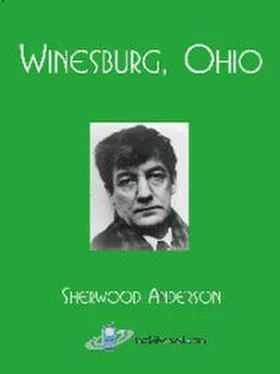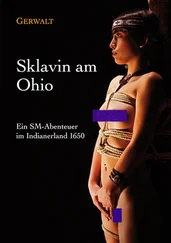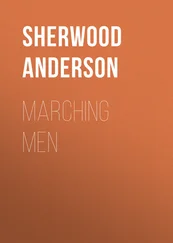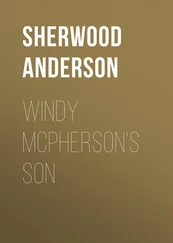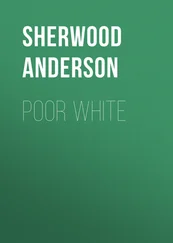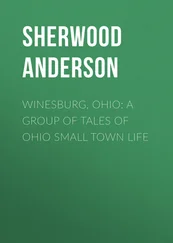Sherwood Anderson - Winesburg, Ohio
Здесь есть возможность читать онлайн «Sherwood Anderson - Winesburg, Ohio» весь текст электронной книги совершенно бесплатно (целиком полную версию без сокращений). В некоторых случаях можно слушать аудио, скачать через торрент в формате fb2 и присутствует краткое содержание. Жанр: Старинная литература, на английском языке. Описание произведения, (предисловие) а так же отзывы посетителей доступны на портале библиотеки ЛибКат.
- Название:Winesburg, Ohio
- Автор:
- Жанр:
- Год:неизвестен
- ISBN:нет данных
- Рейтинг книги:3 / 5. Голосов: 1
-
Избранное:Добавить в избранное
- Отзывы:
-
Ваша оценка:
- 60
- 1
- 2
- 3
- 4
- 5
Winesburg, Ohio: краткое содержание, описание и аннотация
Предлагаем к чтению аннотацию, описание, краткое содержание или предисловие (зависит от того, что написал сам автор книги «Winesburg, Ohio»). Если вы не нашли необходимую информацию о книге — напишите в комментариях, мы постараемся отыскать её.
Winesburg, Ohio — читать онлайн бесплатно полную книгу (весь текст) целиком
Ниже представлен текст книги, разбитый по страницам. Система сохранения места последней прочитанной страницы, позволяет с удобством читать онлайн бесплатно книгу «Winesburg, Ohio», без необходимости каждый раз заново искать на чём Вы остановились. Поставьте закладку, и сможете в любой момент перейти на страницу, на которой закончили чтение.
Интервал:
Закладка:
"It's a woman you see, that's what it is! It's a woman and, oh, she is lovely! She is hurt and is suffering but she makes no sound. Don't you see how it is? She lies quite still, white and still, and the beauty comes out from her and spreads over everything. It is in the sky back there and all around everywhere. I didn't try to paint the woman, of course. She is too beautiful to be painted. How dull to talk of composition and such things! Why do you not look at the sky and then run away as I used to do when I was a boy back there in Winesburg, Ohio?"
That is the kind of thing young Enoch Robinson trembled to say to the guests who came into his room when he was a young fellow in New York City, but he always ended by saying nothing. Then he began to doubt his own mind. He was afraid the things he felt were not getting expressed in the pictures he painted. In a half indignant mood he stopped inviting people into his room and presently got into the habit of locking the door. He began to think that enough people had visited him, that he did not need people any more. With quick imagination he began to invent his own people to whom he could really talk and to whom he explained the things he had been unable to explain to living people. His room began to be inhabited by the spirits of men and women among whom he went, in his turn saying words. It was as though everyone Enoch Robinson had ever seen had left with him some essence of himself, something he could mould and change to suit his own fancy, something that understood all about such things as the wounded woman behind the elders in the pictures.
The mild, blue-eyed young Ohio boy was a complete egotist, as all children are egotists. He did not want friends for the quite simple reason that no child wants friends. He wanted most of all the people of his own mind, people with whom he could really talk, people he could harangue and scold by the hour, servants, you see, to his fancy. Among these people he was always self-confident and bold. They might talk, to be sure, and even have opinions of their own, but always he talked last and best. He was like a writer busy among the figures of his brain, a kind of tiny blue-eyed king he was, in a six-dollar room facing Washington Square in the city of New York.
Then Enoch Robinson got married. He began to get lonely and to want to touch actual flesh-and-bone people with his hands. Days passed when his room seemed empty. Lust visited his body and desire grew in his mind. At night strange fevers, burning within, kept him awake. He married a girl who sat in a chair next to his own in the art school and went to live in an apartment house in Brooklyn. Two children were born to the woman he married, and Enoch got a job in a place where illustrations are made for advertisements.
That began another phase of Enoch's life. He began to play at a new game. For a while he was very proud of himself in the role of producing citizen of the world. He dismissed the essence of things and played with realities. In the fall he voted at an election and he had a newspaper thrown on his porch each morning. When in the evening he came home from work he got off a streetcar and walked sedately along behind some business man, striving to look very substantial and important. As a payer of taxes he thought he should post himself on how things are run. "I'm getting to be of some moment, a real part of things, of the state and the city and all that," he told himself with an amusing miniature air of dignity. Once, coming home from Philadelphia, he had a discussion with a man met on a train. Enoch talked about the advisability of the government's owning and operating the railroads and the man gave him a cigar. It was Enoch's notion that such a move on the part of the government would be a good thing, and he grew quite excited as he talked. Later he remembered his own words with pleasure. "I gave him something to think about, that fellow," he muttered to himself as he climbed the stairs to his Brooklyn apartment.
To be sure, Enoch's marriage did not turn out. He himself brought it to an end. He began to feel choked and walled in by the life in the apartment, and to feel toward his wife and even toward his children as he had felt concerning the friends who once came to visit him. He began to tell little lies about business engagements that would give him freedom to walk alone in the street at night and, the chance offering, he secretly re-rented the room facing Washington Square. Then Mrs. Al Robinson died on the farm near Winesburg, and he got eight thousand dollars from the bank that acted as trustee of her estate. That took Enoch out of the world of men altogether. He gave the money to his wife and told her he could not live in the apartment any more. She cried and was angry and threatened, but he only stared at her and went his own way. In reality the wife did not care much. She thought Enoch slightly insane and was a little afraid of him. When it was quite sure that he would never come back, she took the two children and went to a village in Connecticut where she had lived as a girl. In the end she married a man who bought and sold real estate and was contented enough.
And so Enoch Robinson stayed in the New York room among the people of his fancy, playing with them, talking to them, happy as a child is happy. They were an odd lot, Enoch's people. They were made, I suppose, out of real people he had seen and who had for some obscure reason made an appeal to him. There was a woman with a sword in her hand, an old man with a long white beard who went about followed by a dog, a young girl whose stockings were always coming down and hanging over her sh— tops. There must have been two dozen of the shadow people, invented by the child-mind of Enoch Robinson, who lived in the room with him.
And Enoch was happy. Into the room he went and locked the door. With an absurd air of importance he talked aloud, giving instructions, making comments on life. He was happy and satisfied to go on making his living in the advertising place until something happened. Of course something did happen. That is why he went back to live in Winesburg and why we know about him. The thing that happened was a woman. It would be that way. He was too happy. Something had to come into his world. Something had to drive him out of the New York room to live out his life an obscure, jerky little figure, bobbing up and down on the streets of an Ohio town at evening when the sun was going down behind the roof of Wesley Moyer's livery barn.
About the thing that happened. Enoch told George Willard about it one night. He wanted to talk to someone, and he chose the young newspaper reporter because the two happened to be thrown together at a time when the younger man was in a mood to understand.
Youthful sadness, young man's sadness, the sadness of a growing boy in a village at the year's end, opened the lips of the old man. The sadness was in the heart of George Willard and was without meaning, but it appealed to Enoch Robinson.
It rained on the evening when the two met and talked, a drizzly wet October rain. The fruition of the year had come and the night should have been fine with a moon in the sky and the crisp sharp promise of frost in the air, but it wasn't that way. It rained and little puddles of water shone under the street lamps on Main Street. In the woods in the darkness beyond the Fair Ground water dripped from the black trees. Beneath the trees wet leaves were pasted against tree roots that protruded from the ground. In gardens back of houses in Winesburg dry shriveled potato vines lay sprawling on the ground. Men who had finished the evening meal and who had planned to go uptown to talk the evening away with other men at the back of some store changed their minds. George Willard tramped about in the rain and was glad that it rained. He felt that way. He was like Enoch Robinson on the evenings when the old man came down out of his room and wandered alone in the streets. He was like that only that George Willard had become a tall young man and did not think it manly to weep and carry on. For a month his mother had been very ill and that had something to do with his sadness, but not much. He thought about himself and to the young that always brings sadness.
Читать дальшеИнтервал:
Закладка:
Похожие книги на «Winesburg, Ohio»
Представляем Вашему вниманию похожие книги на «Winesburg, Ohio» списком для выбора. Мы отобрали схожую по названию и смыслу литературу в надежде предоставить читателям больше вариантов отыскать новые, интересные, ещё непрочитанные произведения.
Обсуждение, отзывы о книге «Winesburg, Ohio» и просто собственные мнения читателей. Оставьте ваши комментарии, напишите, что Вы думаете о произведении, его смысле или главных героях. Укажите что конкретно понравилось, а что нет, и почему Вы так считаете.
